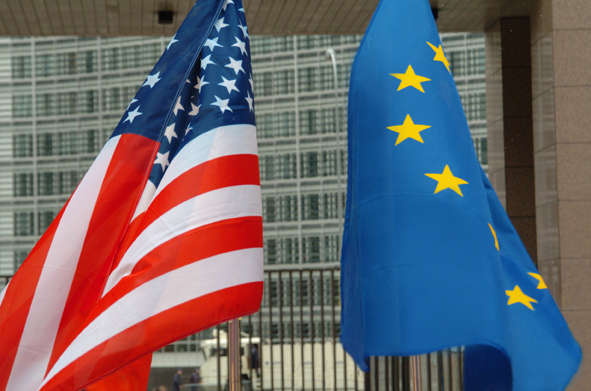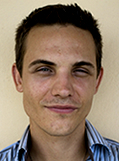Les lauréats pour la bourse de Jérôme Lohez 2010 ont été sélectionnés, et sont les suivants :
- Paula Henin (France, London School of Economics – Université Paris I Panthéon-Sorbonne – Columbia University Law School)
- Hélène Franchineau (France, Sciences Po – Columbia University Graduate School of Journalism)
- Alban Pétré (France, Ecole Pour L’Informatique et Les Techniques Avancees – Stevens Institute of Technology)

1. Paula Henin (France, London School of Economics – Université Paris I Panthéon-Sorbonne – Columbia University Law School)
Le succès académique de Mme Henin était clair dès son jeune âge. Elle fut félicitée par le maire de Sèvres pour ses résultats remarquables au baccalauréat français. Paula parti ensuite étudier les relations internationales et l’histoire à la London School of Economics (LSE). Elle se spécialisa dans le Moyen-Orient et le droit international public. Paula se plaça parmi les un pour cent supérieurs des élèves de sa promotion. Paula chercha à éclaircir un situation dans laquelle il semble y avoir mésentente et parfois animosité entre l’Occident et le monde arabe. Sa thèse de doctorat, “A French perspective on the British and American interventions in the Levant, May – November 1958” fut félicitée par le LSE’s Board of Examiners et reçut le prix Hue Wheldon.
Paula reçut la bourse Fulbright Foreign Student Scholarship 2010-2011 pour participer à un programme de double diplôme entre la Columbia Law School et l’Univiersité Paris I Panthéon-Sorbonne. Elle est membre du conseil de la Columbia International Arbitration Association. Paula porte un grand intérêt au droit international. Son objectif est de travailler comme conseiller juridique pour une organisation internationale importante, le ministère français des Affaires étrangères et européennes, ou un tribunal international.
Mme Henin parle français, anglais, espagnol et arabe et est passionnée par la guitare et le saxophone.

2. Hélène Franchineau (France, Sciences Po – Columbia University Graduate School of Journalism)
Mme Franchineau a complété un programme de journalisme à Sciences Po Paris et deux programmes dans les affaires internationales et dans la langue et culture chinoise à Sciences Po Bordeaux.
Hélène a ensuite travaillé pour Le Monde et Slate à Shanghai et Paris. Elle a écrit des articles d’actualité sur la Shanghai World Expo, sur les jeux olympiques de Beijing en 2008, et sur les émeutes de la minorité musulmane dans la province de Xinjiang. En 2009 Hélène effectua un stage au service étranger du Washington Times où elle fut responsable de la couverture des décisions politiques liées au changement climatique.
Hélène souhaite entrer dans le journalisme multimédia, qu’elle considère comme l’avenir du journalisme. Elle a choisi d’étudier aux États-Unis parce qu’elle les considère très en avance sur les pays européens dans le développement de ce type de journalisme. Elle s’inscrit à la Columbia Graduate School of Journalism pour l’automne 2010. Elle s’intéresse non seulement dans la narration, mais aussi dans la publication de blogs, le montage radio, la photographie et la vidéo, et les médias sociaux.
Mme Franchineau parle français, anglais et chinois.

3. Alban Pétré (France, Ecole Pour L’Informatique et Les Techniques Avancees – Stevens Institute of Technology)
M. Pétré a été employé à la Société Générale sous la direction du responsable mondial de la section Risk Assessment and Controls. Il a travaillé sur la création d’une méthodologie pour améliorer le contrôle de la navigation web des utilisateurs système de la Société Générale et sur d’autres projets liés à la sécurité. Il fut reconnu par ses professeurs et superviseurs pour sa créativité, son souci du détail et son esprit d’équipe.
Alban visita New York pour la première fois en 2009 et fut particulièrement attiré par la ville. Il va entrer au Stevens Institute of Technology au printemps 2011. Il désire élargir ses horizons à travers une expérience de l’éducation américaine, et espère que le temps passé aux États-Unis lui permettra de promouvoir les échanges culturels à la fois aux États-Unis et lorsqu’il reviendra en France.
Le gala de remise des prix aura lieu au printemps 2011.
Le Comité de sélection de la bourses d’études Jérôme Lohez:
Professeur Elizabeth Roistacher (Président du Comité)
Capitaine Jordan Becker (lauréat 2009)
M. Stephane Bouniol
M. Philippe Carls
M. Mark Denne
M. Florent D’Halluin (lauréat 2009)
M. Brian T. Kelly
M. Vincent De Laggabe
Mme. Dening Lohez (Fondatrice)
Mme. Barbara Wing
Elizabeth Roistacher est professeur d’économie au Queens College et au Graduate Center, City University of New York. Elle a été sous-secrétaire adjoint des affaires économiques au U.S. Department of Housing and Urban Development et collaboratrice à la Brookings Economic Policy. Professeur Roistacher fut également directrice de l’Office de l’Office of Honors and Scholarships au Queens College. Professeur Roistacher reçut un doctorat en économie de l’University of Pennsylvania.




















